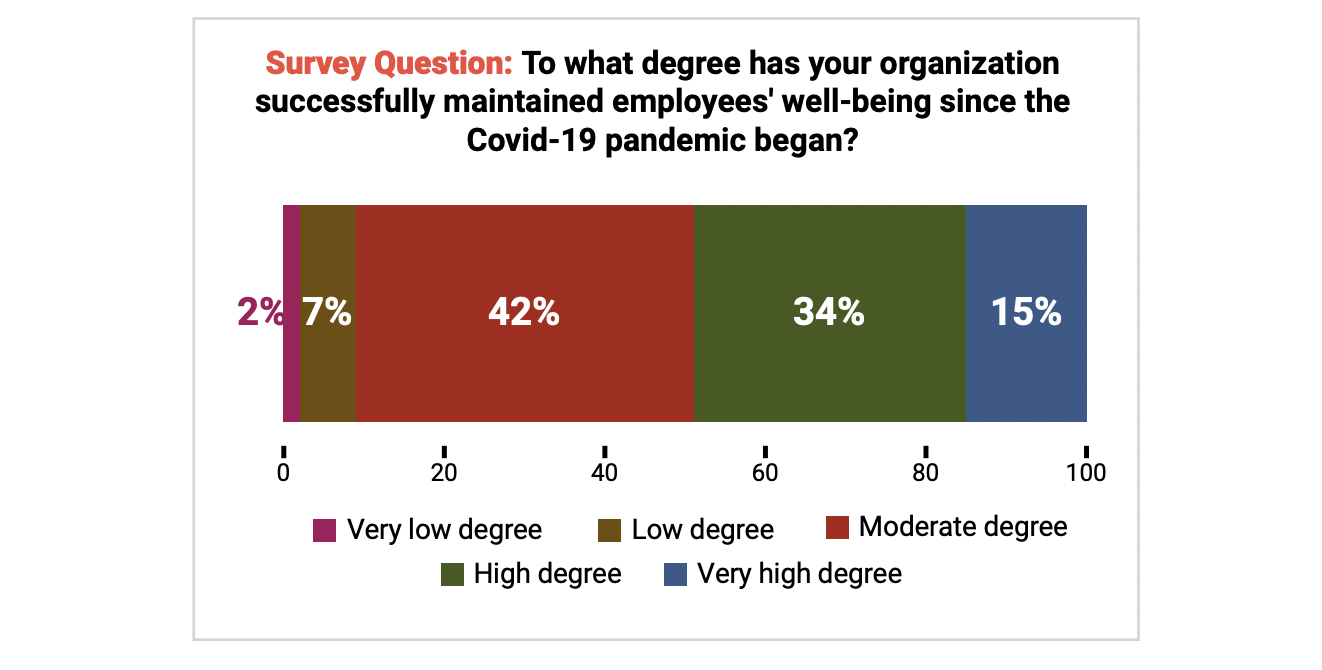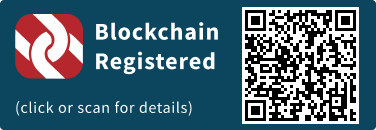Employee Well-Being is Shaky as Organizations Struggle to Quell Anxiety, Fear, and Uncertainty HR Research Institute Releases Results of 2022 Survey
Results of a new annual survey, "The State of Employee Well-Being," reveals significant challenges ahead
Jacksons Point, Ontario, Canada (Newsworthy.ai) Tuesday Jun 28, 2022 @ 8:00 AM EDT
Despite a plethora of employee-sponsored well-being initiatives, employee well-being is tenuous, as many organizations struggle to rise to the challenges presented by the pandemic and economic uncertainties. Despite a multitude of programs in place, they’re not working well. That’s the conclusion of a new annual survey, “The State of Employee Well-Being 2022” conducted by the HR Research Institute in the first quarter of 2022.

Stressful workloads have probably played a major role in the so-called Great Resignation. Piling on the work results in burnout, diminished well-being, and ultimately, resignation.
Less than one quarter (22%) of respondents say their well-being programs are highly effective. Of those who say their programs are downright ineffective, 34% say their programs are lackluster and/or just plain sparse. Moreover, only 4% strongly agree that their organization is excellent at helping their employees address the significant stressors that they are facing today.
HR professionals feel it is their responsibility to help reduce employee fears, even as employees struggle to navigate and maintain stable working conditions, but uncertainty about the future is a major challenge, say close to half of the respondents.
Part of the problem is too much work. Fully 73% say their organizations suffer from overwhelming employee workloads.
“Stressful workloads have probably played a major role in the so-called Great Resignation. Piling on the work clearly doesn’t save money in the long run if it only results in burnout, diminished well-being, and, ultimately, resignation,” says Mark Vickers, Chief Research Analyst at the HR Research Institute.
Stress, anxiety, uncertainty, and depression dog employees, even though close to 60% of organizations acknowledge that mental health is among the top five HR
priorities in the organization.
· 73% of companies offer mental health support through Employee Assistance Programs,
· 57% offer flexible work arrangements
· 51% say they offer information about mental health issues
· But only 18% are training managers around mental health issues, likely preventing some employees from accessing the programs that are in place
Adding to the pressure-cooker is financial stress. One-third of respondents reported that employees are worried about their finances. Close to half (46%) are worried about having enough to cover unexpected emergencies. More than one-third (38%) say employees worry about running out of money before payday.
Other major findings include:
· 57% agree or strongly agree that mental health is among the top five HR priorities. More than two-thirds say employees in their organization have dealt with depression over the last 12 months.
· Stunningly, one-quarter of respondents say employee mental health is not a priority at all.
· Over half (62%) say that negative stress is prevalent at work. Negative stress is detrimental to both the physical and emotional health of workers, leading to a poor employee experience and reduced productivity.
Managing mental health can have hugely positive impacts on the organization. For every $1 invested in mental health, $4 is returned in terms of health and productivity, according to a 2020 Lancet Global Health paper.
Respondents acknowledge the importance of well-being initiatives, and many say they are working to enhance the following well-being issues, even as these initiatives may be floundering:
· Mental/emotional well-being: 78%
· Work Environment well-being: 70%
· Physical well-being: 66%
· Financial well-being: 56%
· Social well-being: 48%
The organizations that have been more successful are smaller companies, 62% of which say their organizations have successfully maintained employee well-being to a high or very high degree during the pandemic, compared to less than half of those at mid-sized (45%) and large firms (44%).
“Well-being programs, well-managed and threaded throughout an organization can have significant positive impacts,” says Debbie McGrath, CEO of HR.com. “They can improve employee engagement, which in turn leads to better performance overall. Well-done and delivered, solid well-being programs can also help attract top talent in a tight labor market. The challenge for HR professionals is to tackle important issues, like making sure employees’ mental health and safety are taken care of. And the only way to do that is to take a personalized view of the employee experience and prioritize programs that will enhance that,” she adds.
The research report, The State of Employee Well-Being 2022 can be downloaded here.
About the Survey
The survey, called, “The State of Employee Health and Well-being 2022,” ran in the first quarter of 2022. There were responses from 246 participants with 185 responding to every question. The participants represent a broad cross-section of employers by industry and also the number of employees, ranging from small businesses with under 50 employees to enterprises with 20,000 or more employees.
About HR.com and the HR Research Institute
HR.com’s HR Research Institute helps HR departments keep their finger on the pulse of HR! HR.com is committed to creating inspired and informed workforces by maximizing the potential of HR professionals around the world. Almost 2 million HR professionals rely on HR.com as the foremost, trusted industry resource for education, career development, and compliance (that many people can’t be wrong!). Offerings include the largest network of HR executives, leading-edge industry research from the HR Research Institute, 13 monthly HR-themed epublications, innovative HR education including 250+ annual webcasts, the most comprehensive HR certification exam preparation program supporting SHRM and HRCI certification, as well as helpful HR tools and legal compliance updates. HR.com has the largest knowledge base of HR practices globally and offers unparalleled training and networking for HR professionals all over the world... 24/7… 365 (just in case you can’t get enough HR). Visit www.hr.com/hrresearchinstitute to download research (always free) and to maximize HR potential.
Filed Under
Other Recent News for HR Research Institute
- More Than Half of Organizations Made No Recent Changes to Their Diversity, Equity and Inclusion Functions in Early 2025, New Research Finds
- Only 1 in 10 Organizations Fully Unlock the Power of HR Tech - New Study by HR Research Institute
- Only 14% of Organizations Truly Understand Employees’ Financial Well-Being - New Study by HR Research Institute
- Strong Relationships and Employee Growth Options Drive Positive Employee Experiences - New Study by HR Research Institute
- Few Organizations Address Menopause Stigma, Affecting Well-Being, Productivity, and the Bottom Line
- New Advisory Board to Guide the Future of Workforce Development and Skills Growth

